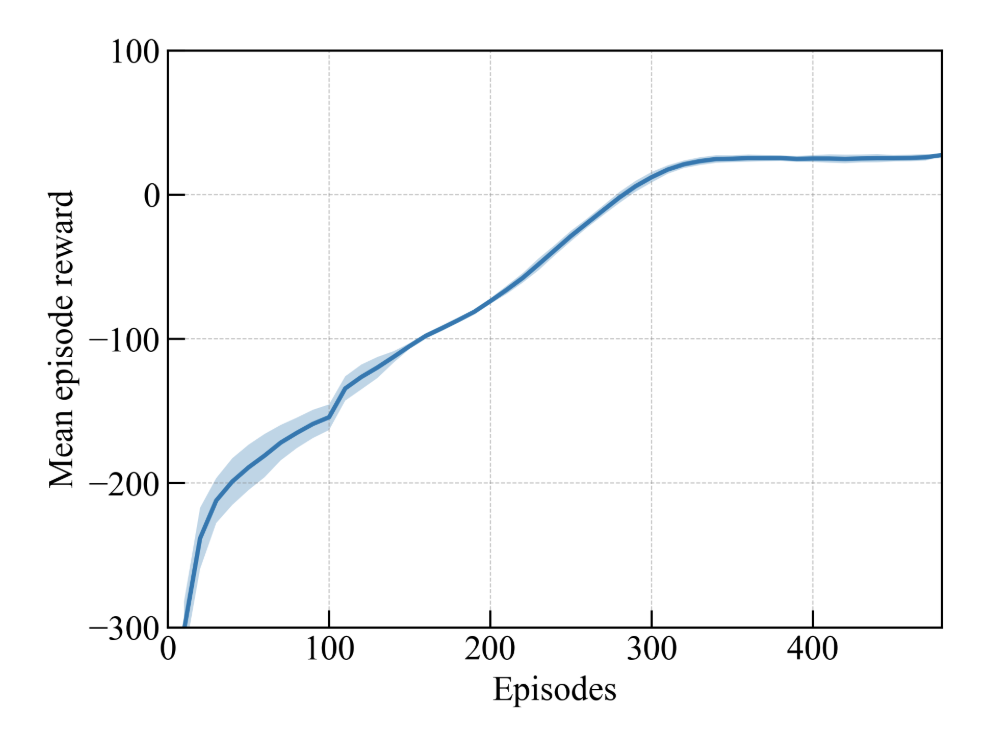Greenhouse Gas Emissions Reduction of a Hybrid-Powered Ferry using Deep Reinforcement Learning for Power Load Distribution
In Proceedings of the 12th IFAC International Symposium on Advanced Control of Chemical Processes (ADCHEM),
Ahmed Abdalla, Bhushan Gopaluni, Patrick Kirchen
[PDF]
Abstract
This article explores the use of the twin delayed deep deterministic policy gradient (TD3), a deep reinforcement learning algorithm, to reduce the cumulative greenhouse gas (GHG) emissions from the sailing trips of a hybrid-powered roll-on roll-off liquefied natural gas ferry. The objective of the algorithm is to optimally control the power load distribution between the ferry’s engines and battery to achieve a reduction in GHG emissions. Results from this study show that the TD3 agent achieved an average reduction in cumulative GHG emissions by 5% against actual operations for the sailing trips that were analyzed. The performance of the TD3 agent was compared to a rule-based energy management strategy (EMS) in which the ferry’s battery was used to operate the ferry completely at low load operations and provide surplus power when the power demand was greater than the engine rating. The rule-based EMS failed to achieve GHG emissions reductions against actual operations thereby indicating the efficacy of the TD3 agent in achieving emissions reductions.
Read or Download: PDF
